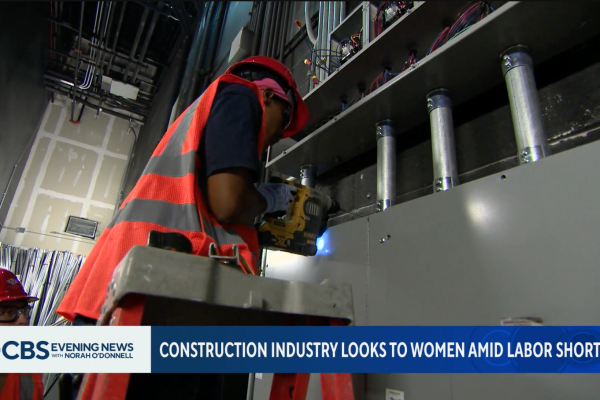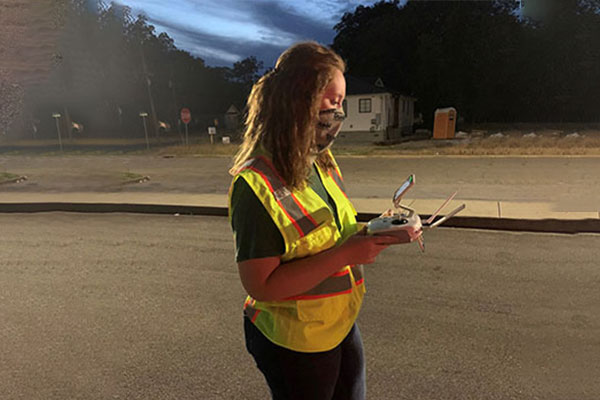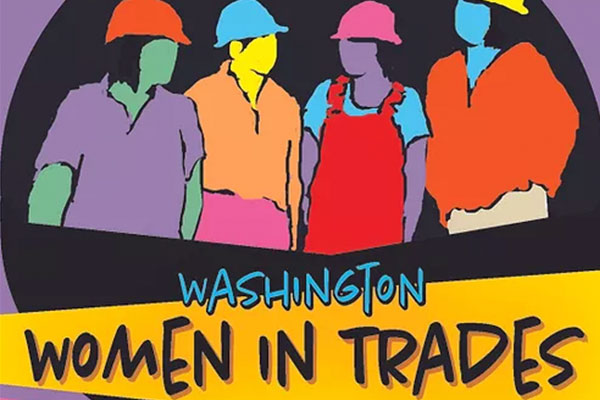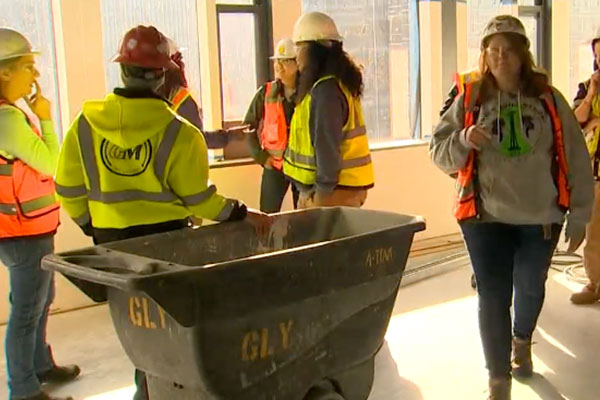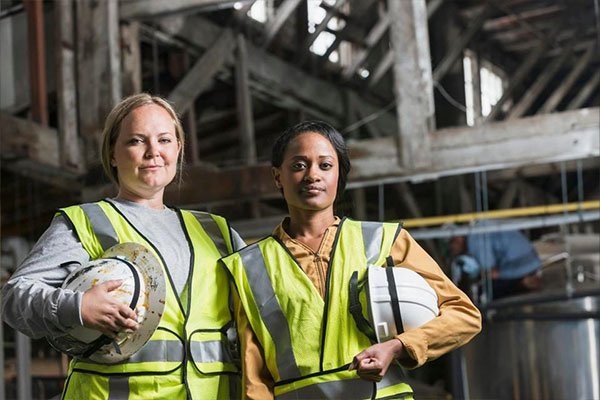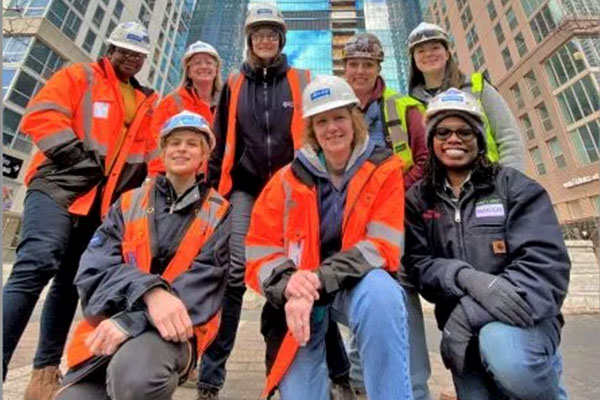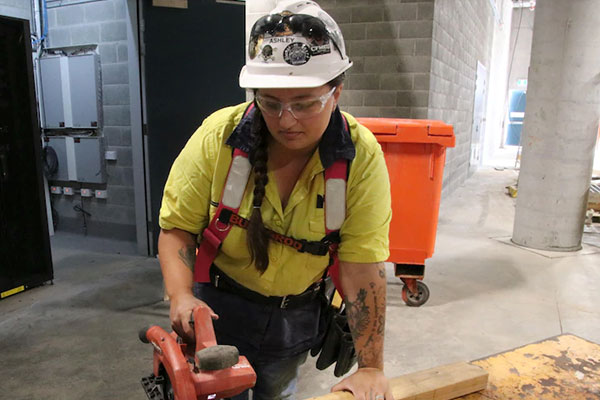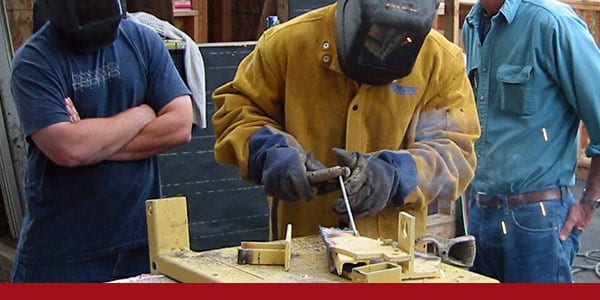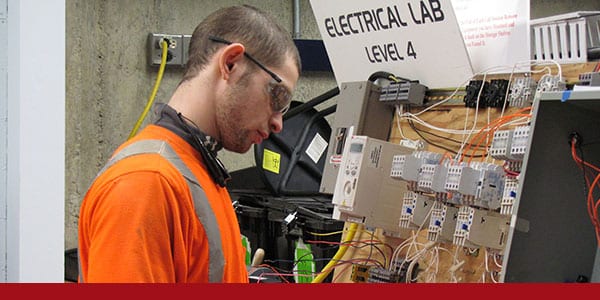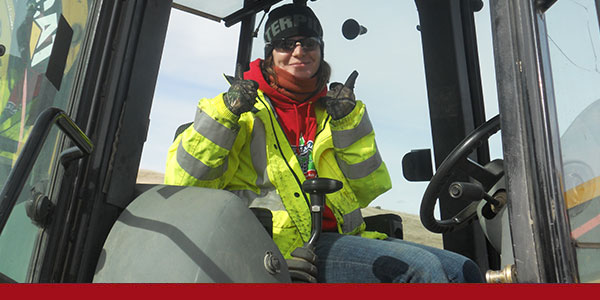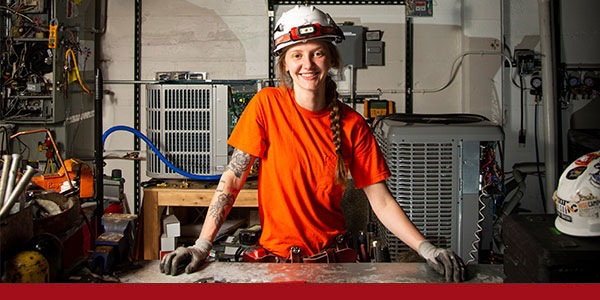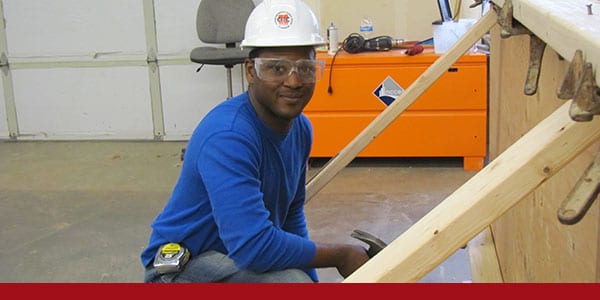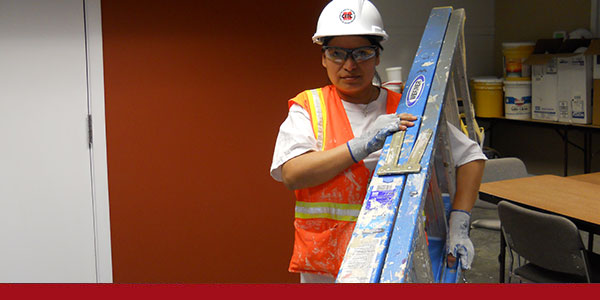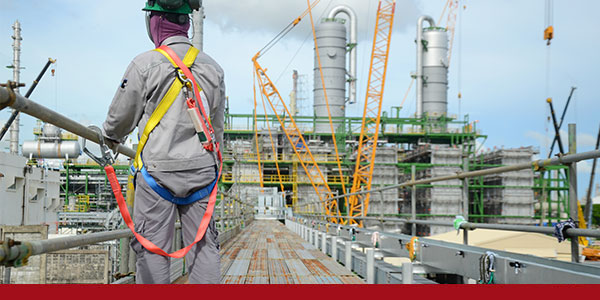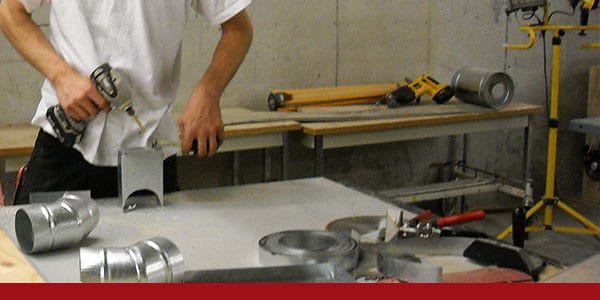There is an ever-increasing need for skilled tradesmen and women in the construction industry. CITC is driven by the concepts of equality, diversity, and inclusion in the workforce, as such, we believe that by partnering with employers we can help employers diversify their workforce. We do this by refocusing our recruitment and retention efforts on female talent.
CITC pays particular attention to help women see career opportunities available to them that they may not have realized existed. By exposing women to on-the-job training opportunities, our goal is to equip these women with the technical and practical assets they need to jumpstart a successful career in construction. By focusing on women we assist emerging female talent in securing a space where their skills, knowledge, and abilities are recognized and ultimately rewarded.
CITC understands that inclusive workforces are the key to innovation. To meet an increasingly diverse pool of consumers, the skilled workforce that CITC supports must be equally diverse.
ANEW – Building People, Building Communities
ANEW’s mission is to improve people’s lives by providing quality training, employment navigation, and supportive services leading to successful family wage careers.
CITC Scholarships
CITC proudly offers multiple scholarship options for students. Click the button below to view options and how to apply.
Construction Is For Everyone
In Alameda County, California, a student in The Salvation Army’s Construction Training Program opens up about how she’s building her future and proving those who doubted her wrong.
“We can do the work also”: Construction industry looks to women amid labor shortage
Historically, construction has been a male-dominated field. But now more women are joining its ranks. Women make up roughly 11% of the country’s construction workforce, according to the Bureau of Labor Statistics.
How Women-Led Initiatives Empower Girls to See Their Future
With women only representing about 10% of the construction workforce, there are many organizations and initiatives actively working to increase the number of women in the industry, while at the same time, breaking down existing barriers to entry.
WA Women in Trades: Tradeswomen Directory
This is an ever evolving list which was spurred by frequent requests from people seeking women plumbers, carpenters, contractors and other skilled trades.
Meet the New Wave of Female Builders
How women in construction are responding to sexism and isolation by creating a community — and a future — for themselves
Western Washington program aims to add women in construction jobs
The Apprenticeship and Nontraditional Employment for Women program provides women with the training they need to take on construction jobs.
Hard hats and thick skin: Seattle’s building boom should include number of women workers
Washington state has the highest percentage of female construction workers in the country: 9.9 percent.
16 Best Resources for Women in Construction
The construction industry needs us, ladies. As Procore detailed in a blog post earlier this month, the construction industry is facing a personnel shortage, and Millennial women are poised to meet the need.
Trillion Dollar Infrastructure Bill May Lead to More Women in Construction
Ongoing negotiations and amendments to President Biden’s American Jobs Plan ended and the bill was officially signed into law last month. The plan — which includes $550 billion worth of new spending — is an investment in rebuilding the nation’s crumbling infrastructure.
Women in Construction: The State of the Industry in 2022
Of all the people working in construction, women comprise only 10.9%. Even smaller is the number of women on the front lines of a job site — only 1 for every 100 employees in the field. Considering that women make up 47% of all employed individuals, this means that the construction industry is only benefitting from about 1.25% of women in the workforce.
How Companies Can Better Support Women In Construction
According to the U.S. Bureau of Labor Statistics, women make up 10.9% of the overall construction workforce. However, when you look at trade involvement, specifically, that number declines. “Of the 8.3 million that were employed in field production of the construction and extraction industries in 2018, only 3.4% were women”
Women in Multifamily Construction: Building a Career
Melissa Tompkins served as project manager for a 101-story Chicago landmark. Hear about her journey in this month’s episode of “Mission Success: Women in Multifamily.”
Women on construction sites welcome NSW funding boost to increase numbers
A $57.4 million state government funding boost is aimed at transitioning more workers into construction, and one part will be to put tools in young women’s hands.
Best-Paying States for Women in Construction
The construction industry in the U.S. has no shortage of demand these days. Women still represent a significant minority of the field’s workforce, but the ranks of women construction workers have grown in recent decades.
- Carpentry
- Electrical: 01 Commercial Inside Wireman
- Electrical: 02 Residential Wireman
- Electrical: 06 Low Energy/Sound & Communication Technician
- Heavy Equipment Operators (HEO)
- HVAC
- Construction Craft Laborers
- Painting
- Plumbing
- Scaffold Erector
- Sheet Metal






